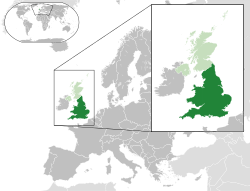This article needs additional citations for verification .(July 2023) |
 | |
| Agency overview | |
|---|---|
| Formed | April 2010 |
| Preceding agencies |
|
| Type | Advisory non-departmental public body |
| Jurisdiction | England and Wales |
| Headquarters | The Royal Courts of Justice, London, WC2A 2LL |
| Employees | 22 [1] : 69 |
| Annual budget | £1.9 million (2023/24) [1] : 65 |
| Agency executives |
|
| Parent department | Ministry of Justice |
| Key document | |
| Website | www |
| Map | |
 England and Wales in the UK and Europe | |
The Sentencing Council for England and Wales is a non-departmental public body that is responsible for developing sentencing guidelines, monitoring the use of guidelines and assessing and reviewing a wide range of decisions relating to sentencing. It was established in April 2010 in consequence of the Coroners and Justice Act 2009, replacing the Sentencing Guidelines Council and the Sentencing Advisory Panel, its predecessor bodies.
Contents
The Council aims to ensure a consistent approach to sentencing, demystify court processes and sentencing for victims and the public, and increase confidence in the criminal justice system.
The Coroners and Justice Act 2009 gives the Sentencing Council a statutory duty to prepare sentencing guidelines about the discharge of a court's duty under section 73 of the Sentencing Act 2020 (c. 17) (reduction in sentence for guilty plea), and sentencing guidelines about the application of any rule of law as to the totality of sentences. It is able to prepare sentencing guidelines about any other matter.
It is also required to consider the impact of sentencing practice and the Government may ask it to look at the impact of policy and legislative proposals relating to sentencing.
The Council comprises eight members of the judiciary and six non-judicial members, all with expertise in the criminal justice system. The Council’s chairman is Lord Justice William Davis, a Court of Appeal judge. All members of the Council are appointed by the Lord Chancellor and the Lady Chief Justice.
